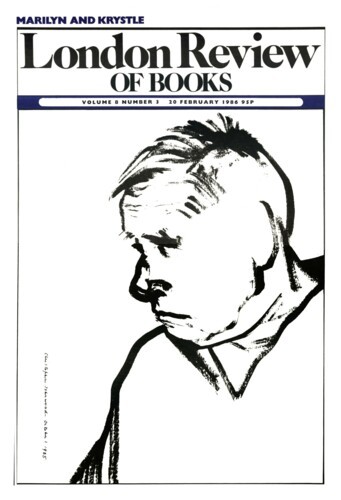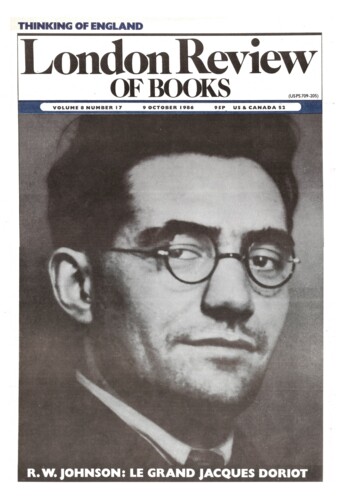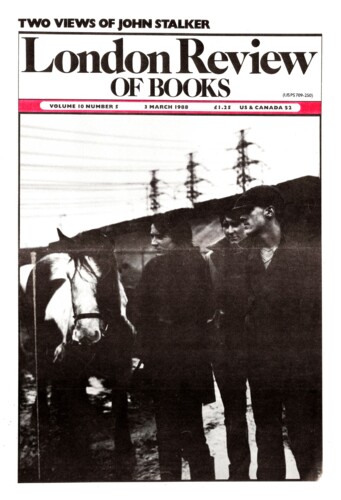More about Marilyn
Michael Church, 20 February 1986
‘A suicide kills two people, Maggie. That’s what it’s for.’ Thus Quentin, the tormented Prospero-figure in Arthur Miller’s autobiographical play After the Fall. Maggie replies by eating a handful of pills, and the scene then twists and turns between Quentin’s acknowledged guilt and his defiant belief that she would have done it anyway. Miller survived the long suicide of Marilyn Monroe, but his muse fell silent. Joe DiMaggio, his baseball-star predecessor, loved her faithfully despite the years of public insult from her, and today still grinds his teeth in silence, no interviews, no comment. Silence of a different sort descended on Robert Kennedy’s Justice Department when journalists started probing after her death: Marilyn had been a phone call away from killing Bobby’s career, and possibly brother Jack’s as well. The silence of those whom Anthony Summers failed to catch suggests that the facts about that death are even now divulged at mortal risk. And the damage goes back and back. For her tuition as an actress Marilyn depended utterly on two women whom she first exalted then pitilessly destroyed. A singing coach who gave her honest devotion was so hounded by the jealous DiMaggio that he tried to end things with a draught of cleaning fluid. Soon after, in the nicest possible way, she dumped him; he is still an invalid today. Kissing Marilyn, said Tony Curtis, was like kissing Hitler. As Sammy Davis Jr put it: ‘She hangs like a bat in the minds of the men that knew her.’



